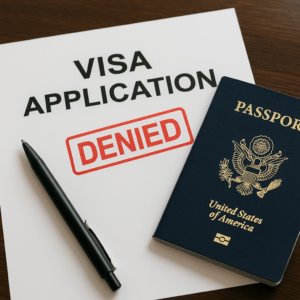When your Vietnamese fiance undergoes his or her interview at the U.S. Consulate in Ho Chi Minh City for a K-1 visa, the interviewing consular officer will ask him or her questions regarding your relationship. While the number of questions, as well as the amount of detail, will vary according to the individual case, here is a list of questions that may come up.
- What is your fiance’s name?
- Where was your fiance born?
- When is your fiance’s birthday?
 Where and how did you meet your fiance?
Where and how did you meet your fiance?- What are your fiance’s hobbies & interests?
- What are your hobbies and interests?
- What does your fiance do for a living?
- What do you do for a living?
- Was your fiance married previously?
- What are your fiance’s parents’ names?
- Where do you plan to live in the United States?
- How many times have you seen your fiance since filing the petition?
- What is your fiance’s current address?
- What religion is your fiance’s?
- What is your religion?
- Does your fiance speak and understand Vietnamese?
- Why do you want to come to the United States?
- Did you have an engagement party/Who was there?
- Do you have honeymoon plans?
- What is your fiance’s phone number/email address?
For additional context on visa-related procedures and potential risks at the border, see Nonimmigrant Visa Is Revoked By CBP At Port-of-Entry. Also, if you’re sponsoring your fiancé’s immigration, it’s important to understand what is form I-864 affidavit of support and how it may apply to your case.
You can stay up to date with the latest U.S. Visas News and updates impacting visa applicants.
For more information, contact Enterline & Partners at:








